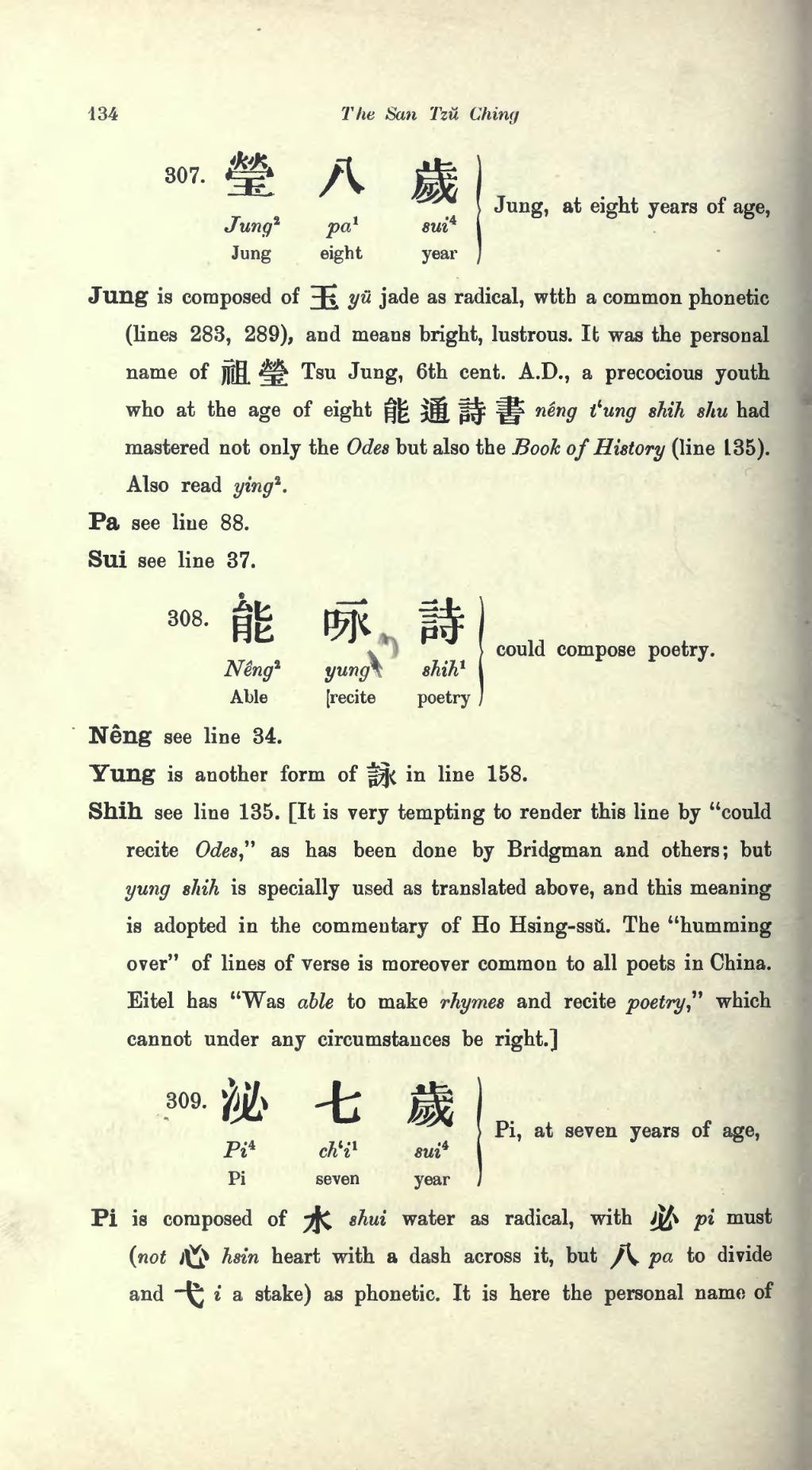| 307. | 瑩 | 八 | 歲 | Jung, at eight years of age, | |
| Jung2 | pa1 | sui4 | |||
| Jung | eight | year |
Jung is composed of 玉 yu jade as radical, with a common phonetic (lines 283, 289), and means bright, lustrous. It was the personal name of 祖瑩 Tsu Jung, 6th cent. A.D., a precocious youth who at the age of eight 能通詩書 nêng t'ung shih shu had mastered not only the Odes but also the Book of History (line 135). Also read ying2.
Pa see line 88.
Sui see line 37.
| 308. | 能 | 咏 | 詩 | could compose poetry. | |
| Nêng2 | yung3 | shih1 | |||
| Able | recite | poetry |
Nêng see line 34.
Yung is another form of 詠 in line 158.
Shih see line 135. [It is very tempting to render this line by "could recite Odes" as has been done by Bridgman and others; but yung shih is specially used as translated above, and this meaning is adopted in the commentary of Ho Hsing-ssŭ. The "humming over" of lines of verse is moreover common to all poets in China. Eitel has "Was able to make rhymes and recite poetry" which cannot under any circumstances be right.]
| 309. | 泌 | 七 | 歲 | Pi, at seven years of age, | |
| Pi4 | ch'i1 | sui4 | |||
| Pi | seven | year |
Pi is composed of 水 shui water as radical, with 必 pi must (not 心 hsin heart with a dash across it, but 八 pa to divide and 弋 i a stake) as phonetic. It is here the personal name of

